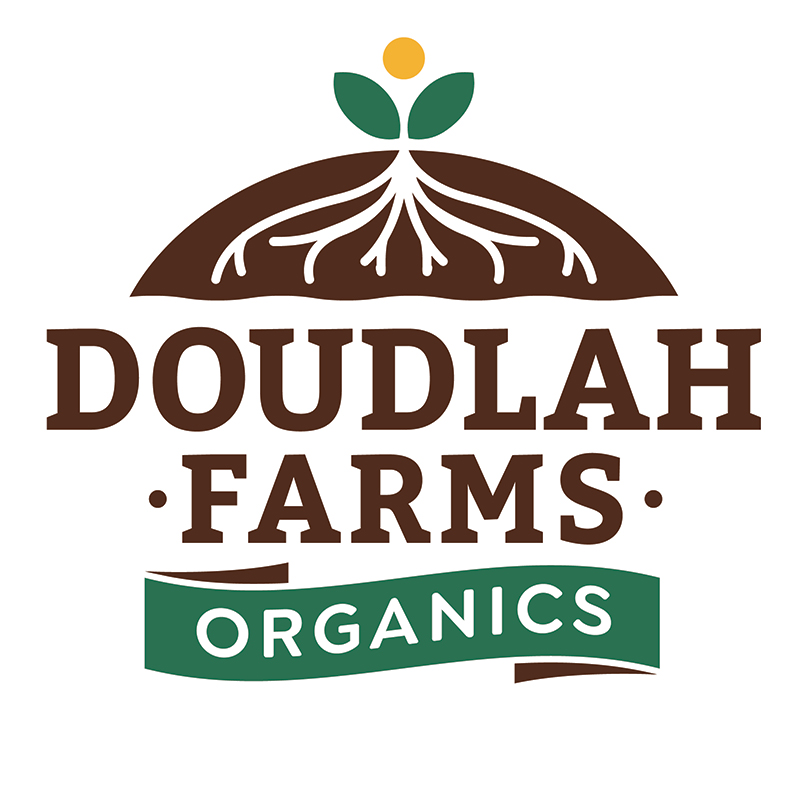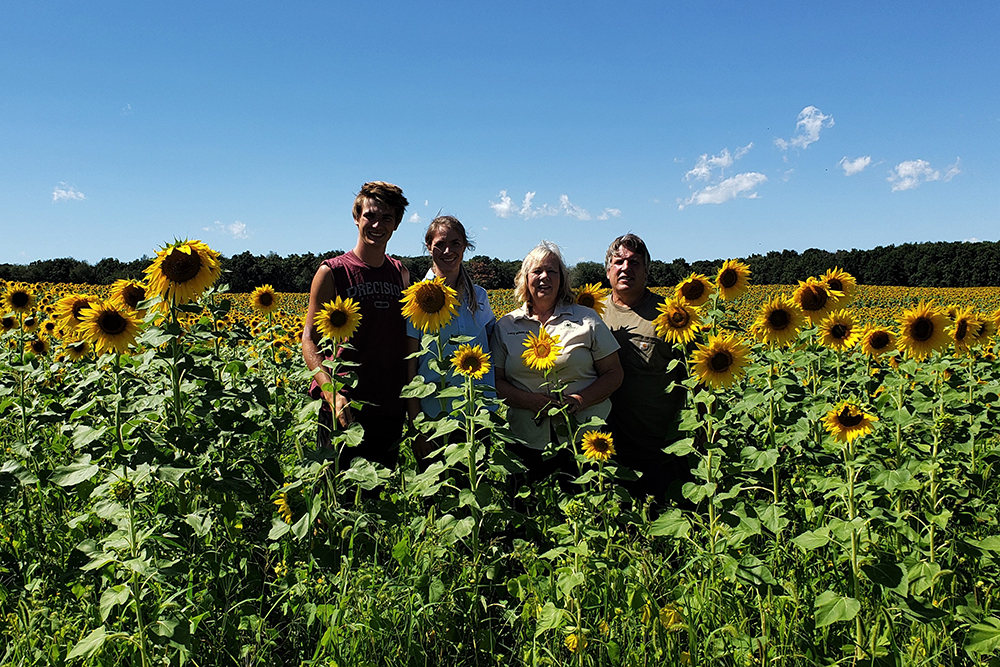by Dean Kallas, Grocery Category Manager
 Where did you grow up?
Where did you grow up?
Mark grew up on the Century Family Farm in Evansville (since the age of 2). Lucy was born and raised in Central Wisconsin. My (Mark’s) son Jason also grew up in the same house in Evansville. Farmers usually don’t stray too far from the home base.
How did you get interested in farming?
My mentor and fourth generation farmer, Earl Doudlah—my dad.
When did you start farming for a living?
I rented land from my dad and farmed on my own starting in high school, continued through college, and then owning my own farms: Doudlah Farms, LLC, started in 1982.
How would you best describe what organic farming is to someone who has never heard of it before?
Mark has been an educator of organic farming for a decade or more. It is about clean eating. Not using toxic chemicals to produce food. It is using organic practices that not only maintain but improve fertility of the soil, land, environment, and water. Sustainability is not enough; you need to be regenerative, to be better every year.
Who is your biggest influence?
Mark has had many, but most importantly was the death of his father. It propelled him into farming organically. His first helping hand was Jeff Moyer of Rodale Institute in Pennsylvania. And his Organic Consultant Reggie Destree of Dane County, Wisconsin. This was a mighty force of a great threesome; unstoppable to date.
How many different crops do you grow on your farm?
My wife Lucy, my son Jason, and I grow over 20 different edible crops and many cover crops for soil health. This is three people farming over 1,700 acres and bringing 20 products to the market—a lot of work.
Did you encounter any hurdles getting your company up and running?
The biggest hurdle was transitioning over 1,700 acres to organic. It is a very expensive task, costing approximately $175 per acre per three years. That is approximately one million dollars for a USDA [organic] certificate, but well worth the costs to sleep at night. Weed control is also a huge expense and, until you learn the biology of soil, it is very difficult. But the land teaches you if you just listen.
Can you describe the process for deciding what to plant and grow on your farm?
Once again it is all about the biology of the soil. We rotate our crops for weed control, [and use] microbes for soil health and beneficial bugs. We showcase our fields with pollinator strips to attract beneficial bugs, which is a huge plus for farmers, bugs (i.e., monarch butterflies) and human health.
What is the best part of your work?
Besides working with my wife and son every day, I would have to say it is harvest. Knowing that you are bringing clean food, nutrient-dense crops that are good for human health and the environment.
What are your favorite plants to grow?
It is always fun to try something different, however that usually requires a lot more equipment and learning. Dry beans are the most difficult. Beans have picky feet (roots). They don’t like their feet too wet or too dry. Hard to grow. They don’t like drought, and it is always a challenge with Mother Nature when she seems to be slightly crabby. Most people would say they enjoy our sunflower fields. Acres and acres of beautiful flowers are always good for the soul.
Which part of your work are you most proud of?
In 2024 we tested clean by an HRI [Health Research Institute] lab here in the US. We were not only tested clean but were told that it was “rare,” even in organic standards, that Doudlah Farms Organics were “undetectable for 200+ pesticides and glyphosate.” Very proud of this accomplishment and would like to believe that it is one of the most important facts for consumers to know is where your food comes from. Know your farmer! Organic is not good enough. Demand more of your farmer.
What motivates you to keep going?
A legacy to leave behind. Farming with my son, Jason, who will someday take over the farming and business, which to date we are very proud of. Knowing I started Jason out right, teaching him about organics and regenerative and biodynamic farming. Jason is going to school for electro-mechanical engineering. Jason is bringing a new level of farming to our practice.
What line of work were you in before you started Doudlah Farms Organics?
Mark got his degree at UW-Madison for Ag-Mechanism Engineering. Worked for J.I. Case out of college developing their Maxxum tractors. Then, for decades, he was the President of Agrecol, a native seed company here in Dane County. During all of these outside the farm jobs, he was always a farmer first.
Do you have any other hobbies or interests?
Mark has the “farming bug” as he calls it, but loves the educational/motivational speaker part of his job. Mark has been a speaker across the U.S. and Canada for decades. Jason enjoys the Indian Flint-Dent corns, and ancient grains. Lucy is the mastermind in the branding and marketing.
Do you have any new products in development?
Doudlah Farms is hoping to build a warehouse to clean and help other farmers do the same. This will help farmers put more money in their pockets and, as they should, be rewarded for farming right. We are also looking at having a line of cooked products.










